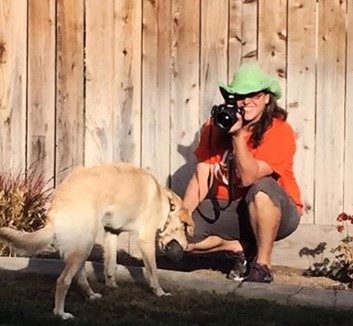It’s a Polish tradition in our family to eat ham, fresh kielbasa, smoked kielbasa, kraut, fresh bread, and perogies, because who needs a vegetable, every Easter.
Being fairly new to this town, the only kielbasa I’ve found was some local farmer packaged meat in the grocery store (it’s okay) and frozen perogies (not okay). The horseradish is so mild, I have to shove half the jar’s contents in my mouth to taste a tiny twinge of hot. The ham is fatty and up until this year, my Polish traditions on the holidays has been less than traditional.
I’ve yet to find a Hamtramck-style town around these parts and frankly, I was a bit sad until…
We were driving around, intentionally getting lost to learn our area, when low and behold, a light burst through the clouds and a single ray of heavenly sunshine bore down onto a small little deli tucked in a strip mall of various stores.
The Polish Deli!
This year’s Easter celebration was on!
When I entered the store, there were probably twenty-ish people in front of me lined up like cattle heading to slaughter in a cramped aisle with crates of fresh bread piled three high from the floor. The line wrapped down the length of the store, curled around a cart of product, and moved to the actual cooler for ordering. The way I figured, if this place was that packed, the food must be awesome, right?
In the thirty minutes I waited in line, I noticed a few things. First, I’m pretty sure I was one of three people who didn’t speak Polish. Every item on the unorganized shelves were written in Polish. As I inched my way closer to the deli cooler, I realized none of the meat was labeled, and what was labeled, was written in, you guessed it, Polish.
I’m not going to lie; the situation was intimidating. That’s when I started mentally reciting all the Polish words I know. Paczki. Golabki. Sto lat. Dupiash. Polka. Yep, that about covers it.
When I asked for a ham hock, the starter for the kraut (kapusta, I think), the guy gave me dog face, you know the cocked head that says, huh?
My response was simple. “Sorry, I don’t know the Polish word for ham hock. I wished I would have paid more attention to my grandparents.” With that, the other two non-Polish speaking people acknowledged and agreed with me, while the rest of the store swore at me in Polish under their breath. Gramma didn’t teach me swear words—I don’t think?!?
Honestly, the whole experience was a bit overwhelming. I wish I’d paid more attention to my grandparents when I was younger. They spoke the language. They lived their traditions as they were taught and passed them down to my parents, and then us kids. Somewhere in my closet is a box full of cards, many from my great aunt—all written in Polish. Maybe that’s where the swear words are hidden.
Here’s what I’m getting at. I sat at the Easter table with all the Polish fixin’s and looked at the empty chairs, partially visualizing my dead relatives. I imagined them smiling and appreciating the traditions we’ve kept over the years. But what saddened my thoughts was thinking of my siblings, my cousins, their children. Am I the last of the family that follows the traditions? And if so, what happens when I die? I mean, I don’t have kids. Will my ancestors be forgotten and get displaced, like in the movie, Coco? I don’t have this answer. Sorry. But I’m curious…
Do you still follow your cultural traditions on holidays?


Rest easy my dear — WE celebrate the traditions!!! I too envision the fam all together. Now that we are down here in FL it is VERY difficult to find traditional dishes. But still we do the best we can. I’m to the point of learning how to make the pierogi. I let you know how it goes. much love,
Elaine
That just warms my heart. Thank you for sharing.